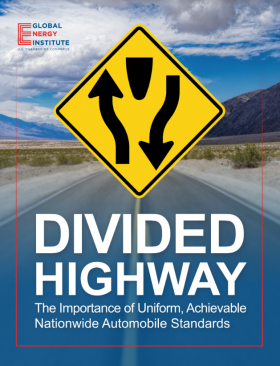
In April 1975, President Gerald Ford delivered a major speech on regulatory reform at the annual meeting of the U.S. Chamber of Commerce. President Ford’s pitch to the business community was not deregulation, but smarter regulation that recognizes the complex factors affecting costs and benefits—and ultimately, American consumers. He made a persuasive case that regulatory agencies need to do a better job of considering the practical impacts of federal regulations on families and businesses:
"The question is…whether, in making changes in our regulations, would they make more sense in terms of costs added and benefits gained. When I talk about costs, I am not just talking about cold figures in a bookkeeping ledger. I am talking about what you pay in the marketplace--in the supermarket, in the clothing store, in the ladies boutique. Ultimately, all such costs are paid by you, the producers, and your wives, the consumers.
All too often, the Federal Government promulgates new rules and regulations which raise costs and consumer prices at the same time, to achieve small or somewhat limited social benefits. In these cases we must either revise proposed rules and regulations to lower their costs, or we must not adopt them in the first place. Moreover, we must examine the whole range of existing rules and regulations to determine whether modifications could lower costs without significantly sacrificing their objectives."
President Ford’s speech came at a time when the Arab Oil Embargo was still fresh in everyone’s mind. A key element of his agenda discussed at the Chamber that day was Ford’s call for comprehensive energy policy legislation to address America’s growing dependence on foreign oil, and the price and supply shocks that accompanied it. Eight months later, Congress passed, and Ford signed, the Energy Policy and Conservation Act of 1975 (EPCA), the nation’s first comprehensive energy legislation. The act imposed a ban on the export of crude oil, established the Strategic Petroleum Reserve (SPR), and authorized the Department of Transportation to establish the nation’s first vehicle fuel economy targets.

